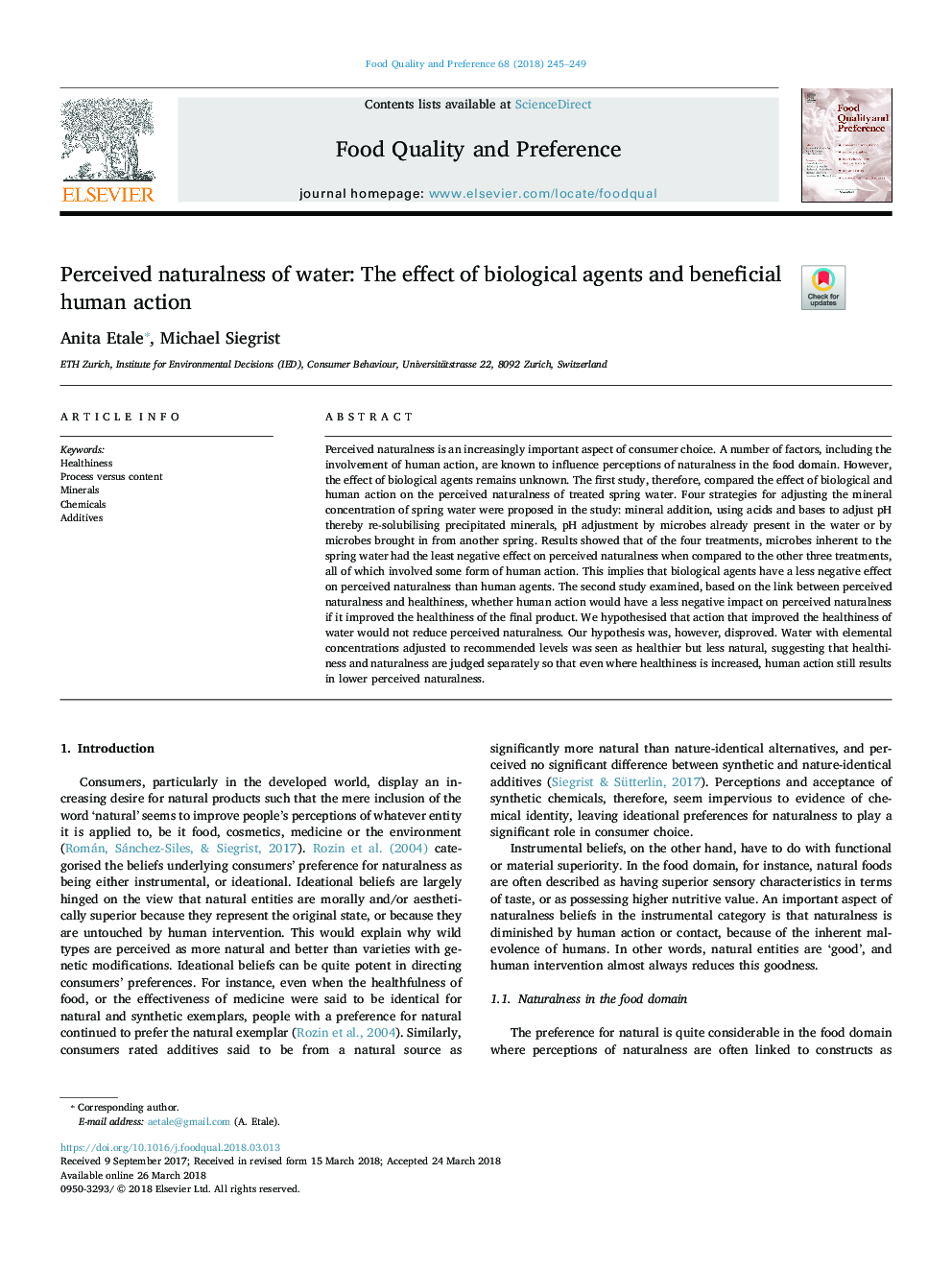| Article ID | Journal | Published Year | Pages | File Type |
|---|---|---|---|---|
| 8838460 | Food Quality and Preference | 2018 | 5 Pages |
Abstract
Perceived naturalness is an increasingly important aspect of consumer choice. A number of factors, including the involvement of human action, are known to influence perceptions of naturalness in the food domain. However, the effect of biological agents remains unknown. The first study, therefore, compared the effect of biological and human action on the perceived naturalness of treated spring water. Four strategies for adjusting the mineral concentration of spring water were proposed in the study: mineral addition, using acids and bases to adjust pH thereby re-solubilising precipitated minerals, pH adjustment by microbes already present in the water or by microbes brought in from another spring. Results showed that of the four treatments, microbes inherent to the spring water had the least negative effect on perceived naturalness when compared to the other three treatments, all of which involved some form of human action. This implies that biological agents have a less negative effect on perceived naturalness than human agents. The second study examined, based on the link between perceived naturalness and healthiness, whether human action would have a less negative impact on perceived naturalness if it improved the healthiness of the final product. We hypothesised that action that improved the healthiness of water would not reduce perceived naturalness. Our hypothesis was, however, disproved. Water with elemental concentrations adjusted to recommended levels was seen as healthier but less natural, suggesting that healthiness and naturalness are judged separately so that even where healthiness is increased, human action still results in lower perceived naturalness.
Related Topics
Life Sciences
Agricultural and Biological Sciences
Food Science
Authors
Anita Etale, Michael Siegrist,
